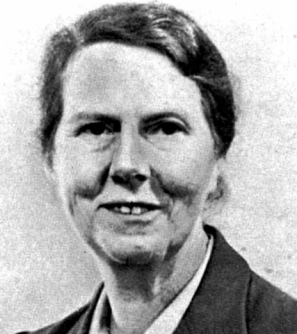Marjory Warren
Marjory Warren (1897–1960) was a pioneering British physician who is often credited with founding the field of geriatrics. Her work significantly improved the care and treatment of elderly patients, particularly those with chronic illnesses and disabilities.
Early Life and Education[edit | edit source]
Marjory Warren was born in 1897. She pursued her medical education at the Royal Free Hospital in London, where she graduated with a degree in medicine. Her early career was marked by a strong interest in the care of older adults, which was relatively uncommon at the time.
Career[edit | edit source]
Warren began her career at the West Middlesex Hospital in Isleworth, London. It was here that she made her most significant contributions to the field of geriatrics. She observed that many elderly patients were being inadequately cared for in long-term hospital wards, often left bedridden and neglected.
Development of Geriatrics[edit | edit source]
Warren's approach to elderly care was revolutionary. She advocated for a comprehensive assessment of each patient, including their medical, social, and psychological needs. This holistic approach led to the development of individualized care plans aimed at improving the quality of life for elderly patients. Her methods included physical rehabilitation, social activities, and proper medical treatment, which significantly reduced the mortality and morbidity rates among her patients.
Publications and Influence[edit | edit source]
Marjory Warren published several influential papers on the care of the elderly, which helped to establish geriatrics as a recognized medical specialty. Her work laid the foundation for modern geriatric medicine and influenced healthcare policies and practices worldwide.
Legacy[edit | edit source]
Warren's contributions to medicine have had a lasting impact. She is remembered as a pioneer in the field of geriatrics, and her work continues to influence the care of elderly patients today. The principles she established are now standard practice in geriatric medicine, and her legacy is honored through various awards and recognitions in the field.
See Also[edit | edit source]
References[edit | edit source]
External Links[edit | edit source]
Search WikiMD
Ad.Tired of being Overweight? Try W8MD's physician weight loss program.
Semaglutide (Ozempic / Wegovy and Tirzepatide (Mounjaro / Zepbound) available.
Advertise on WikiMD
|
WikiMD's Wellness Encyclopedia |
| Let Food Be Thy Medicine Medicine Thy Food - Hippocrates |
Translate this page: - East Asian
中文,
日本,
한국어,
South Asian
हिन्दी,
தமிழ்,
తెలుగు,
Urdu,
ಕನ್ನಡ,
Southeast Asian
Indonesian,
Vietnamese,
Thai,
မြန်မာဘာသာ,
বাংলা
European
español,
Deutsch,
français,
Greek,
português do Brasil,
polski,
română,
русский,
Nederlands,
norsk,
svenska,
suomi,
Italian
Middle Eastern & African
عربى,
Turkish,
Persian,
Hebrew,
Afrikaans,
isiZulu,
Kiswahili,
Other
Bulgarian,
Hungarian,
Czech,
Swedish,
മലയാളം,
मराठी,
ਪੰਜਾਬੀ,
ગુજરાતી,
Portuguese,
Ukrainian
Medical Disclaimer: WikiMD is not a substitute for professional medical advice. The information on WikiMD is provided as an information resource only, may be incorrect, outdated or misleading, and is not to be used or relied on for any diagnostic or treatment purposes. Please consult your health care provider before making any healthcare decisions or for guidance about a specific medical condition. WikiMD expressly disclaims responsibility, and shall have no liability, for any damages, loss, injury, or liability whatsoever suffered as a result of your reliance on the information contained in this site. By visiting this site you agree to the foregoing terms and conditions, which may from time to time be changed or supplemented by WikiMD. If you do not agree to the foregoing terms and conditions, you should not enter or use this site. See full disclaimer.
Credits:Most images are courtesy of Wikimedia commons, and templates Wikipedia, licensed under CC BY SA or similar.
Contributors: Prab R. Tumpati, MD


